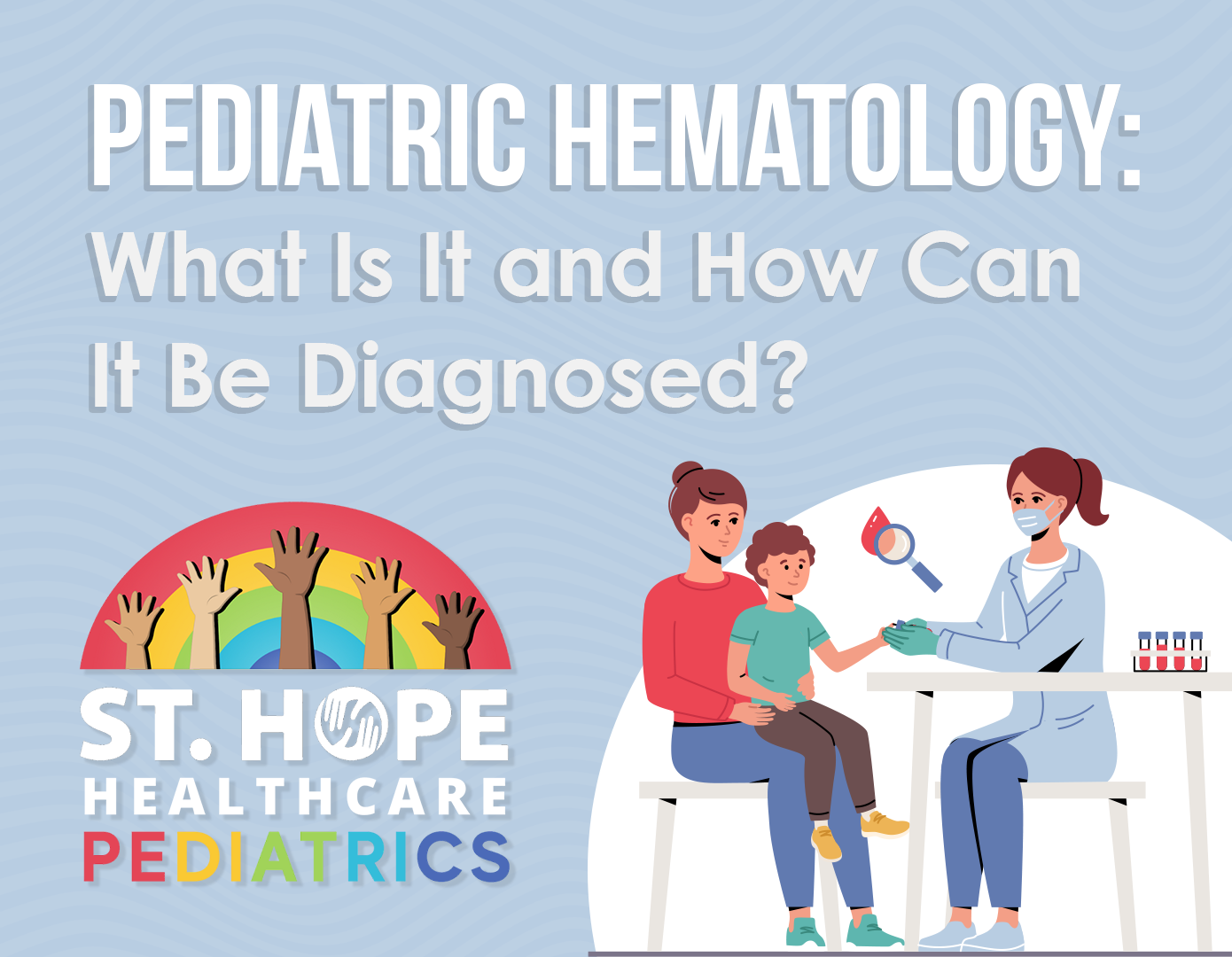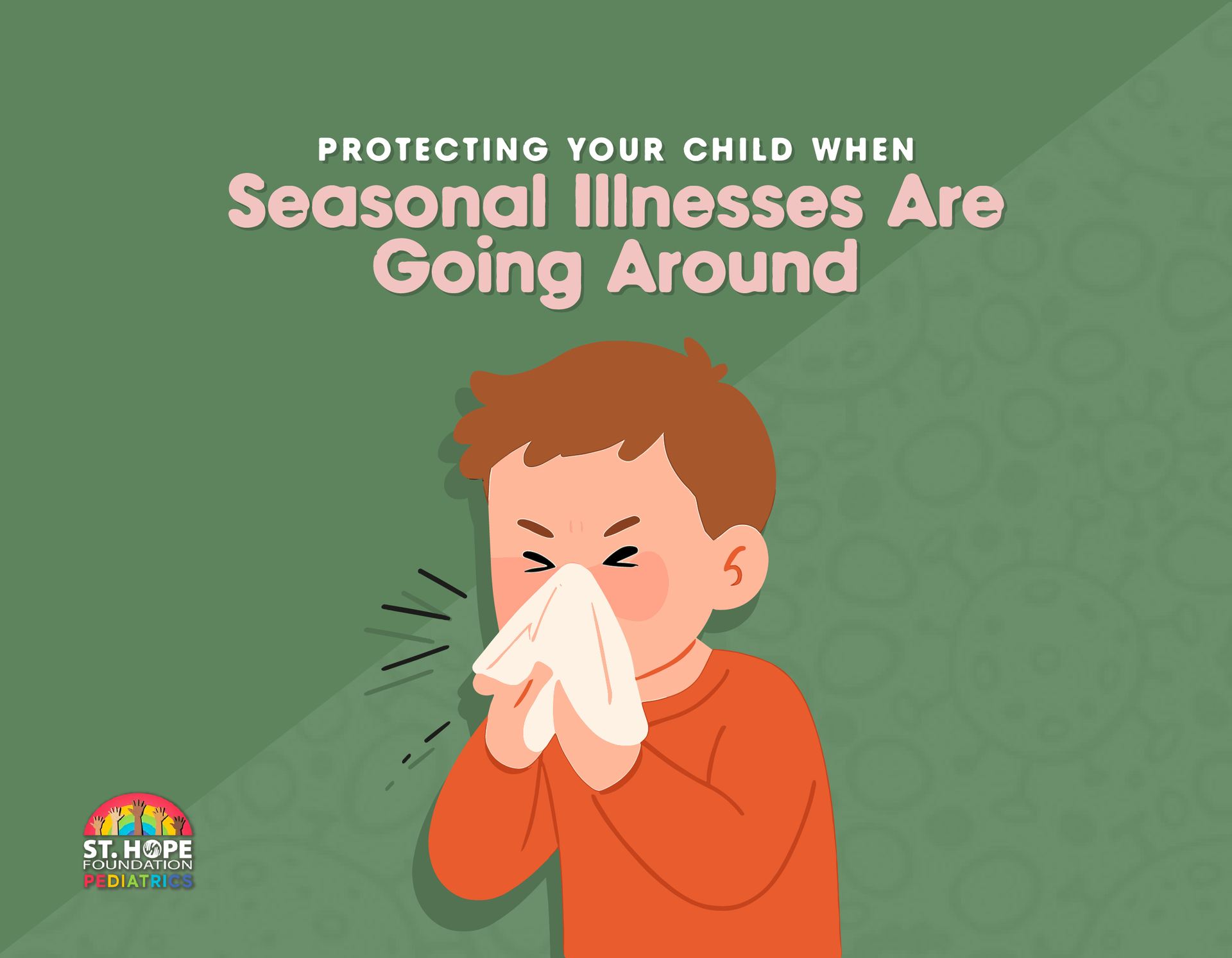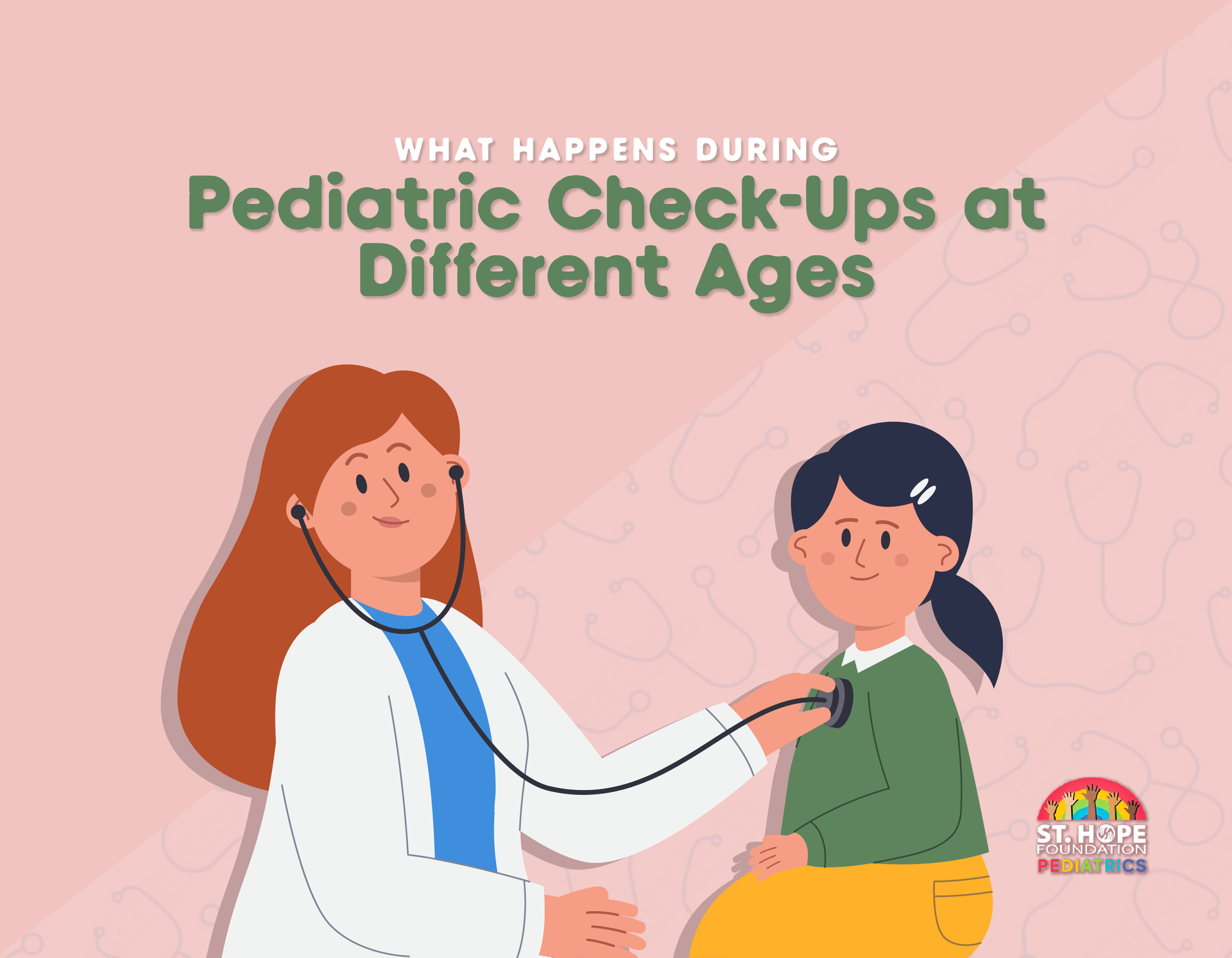
Blood diseases are inherently scary for both children and their parents. Helping families manage these conditions effectively while providing compassionate care requires dedication and skill – both attributes on which the pediatricians at St. Hope Pediatrics pride themselves.
Pediatric Hematology
Pediatric hematology is a branch of medicine focused on the study, prevention, diagnosis and treatment of blood diseases in children. These diseases can potentially affect:
- Red blood cells
- White blood cells
- Platelets
- Blood vessels
- Bone marrow
- Lymph nodes
- The proteins responsible for clotting
Some of the conditions a hematologist can treat include:
- Leukemia
- Lymphoma
- Sickle cell disease
- Hemophilia
- Thalassemia
- Aplastic anemia
- Clotting disorders
- Rare genetic blood diseases
How Do Pediatric Hematologists Diagnose Blood Diseases?
Thoroughness and accuracy are extremely important in any type of diagnostic testing, but it’s particularly important when children are involved. Blood diseases can have serious, long-term side effects that can potentially change the rest of a child’s life – or, in a worst-case scenario, cut that young life short.
Early detection of hematological disorders is crucial, as it enables immediate condition treatment and management, improving the long-term outcomes for the child.
The diagnostic process generally entails:
- Getting a detailed medical history and performing a physical examination of the child
- A frank and honest discussion with parents about symptoms, familial disease history and the child's overall health and lifestyle
- A physical examination, during which the doctor will look for physical signs of a blood disorder such as paleness, rashes or enlarged lymph nodes
Blood tests will be performed if the pediatric hematologist suspects the child may have a blood disease. These tests may include a:
- Complete blood count (CBC) to measure different components of the blood
- Blood smear to examine the blood cells under a microscope
- Coagulation tests to assess the blood's ability to clot
There are also more advanced and sometimes invasive diagnostics that may be necessary depending on initial diagnostic results or if the child is exhibiting certain symptoms. These can include:
- Bone marrow aspiration or biopsy, where a small amount of bone marrow is taken for examination
- Genetic testing, especially when a hereditary blood disorder is suspected
Diagnosis in pediatric hematology, as with many fields in medicine, has experienced improvements in recent years thanks to technological advancements and breakthroughs in research. Modern diagnostic tools like flow cytometry, cytogenetic analysis and molecular genetic testing now provide even more precise results.
Treating Blood Disorders
After a diagnosis is made, a pediatric hematologist will provide an in-depth explanation of the child’s treatment options. These can vary widely depending on the specific condition. In some cases, simple vigilant observation or medications can be used to manage symptoms. Serious blood disorders may justify more invasive treatments like blood transfusions or even bone marrow transplants.
Some conditions will also require specific lifestyle changes, which can be especially difficult for children. This is one area in which pediatric hematology is unique from adult hematology. It’s not always easy to tell parents or families that they need to do everything in their power to prevent their child from ever suffering even a minor cut or bruise.
Knowing children, parents usually understand that perfect injury avoidance isn’t possible. One of the pediatric hematologist’s most important jobs is to teach parents how to deal with some of the inevitable health emergencies or scares that are going to happen while raising their son or daughter.
While the prospect of dealing with a blood disorder can be overwhelming, parents should remember they are not alone. Their child’s medical team, including doctors, nurses, social workers and other specialists, are there to provide support and guidance through every step of the journey.
St. Hope Pediatrics Is Here for Houston Families Dealing with Blood Disorders
St. Hope Foundation Pediatrics offers a comprehensive array of pediatric services, from lab services and well child visits to dentistry and vision care. We’re always here when Houston parents need a reliable and compassionate partner in their child’s medical care. Call us at (713) 778-1300 today to schedule an appointment with one of our pediatricians.













